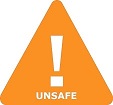
Solifenacin Succinate | Solifenacin Succiate Tablet while Breastfeeding
What is Solifenacin Succinate | Solifenacin Succiate Tablet used for?
Is using Solifenacin Succinate | Solifenacin Succiate Tablet unsafe in breastfeeding? Can there be bad consequences for baby if I use it while breastfeeding?

Solifenacin Succinate | Solifenacin Succiate Tablet Breastfeeding Analsys
Solifenacin succinate while Breastfeeding
UnsafeAdvice to take a minimal dose for a short time since anti-cholinergic drugs may decrease breast milk production. Check-up for anti-cholinergic symptoms (mouth dryness, constipation...)
Solifenacin Succinate | Solifenacin Succiate Tablet Breastfeeding Analsys - 2
Solifenacin succinate while Breastfeeding
CAS Number: 242478-37-1
Because there is no published experience with solifenacin during breastfeeding and it has a long half-life averaging 55 hours, an alternate drug may be preferred, especially while nursing a newborn or preterm infant. Long-term use of solifenacin might reduce milk production or milk letdown. During long-term use, observe the infant for signs of decreased milk production (e.g., insatiety, poor weight gain) and for anticholinergic symptoms (e.g., constipation, urinary retention, UTI, dry mouth).

I already used Solifenacin Succinate | Solifenacin Succiate Tablet and meanwhile I breastfed my baby should I be concerned?
If you observer abnormal behavior or any other health issue in infant then you should immediately call 911 or contact other contact other emergency service provider in your area otherwise closely monitor the baby and inform your doctor about your Solifenacin Succinate | Solifenacin Succiate Tablet usage and time interval of breastfeeding.
My health care provider has asked me to use Solifenacin Succinate | Solifenacin Succiate Tablet, what to do?
If your doctor knows that you are breastfeeding mother and still prescribes Solifenacin Succinate | Solifenacin Succiate Tablet then there must be good reason for that as Solifenacin Succinate | Solifenacin Succiate Tablet is considered unsafe, It usually happens when doctor finds that overall advantage of taking
If I am using Solifenacin Succinate | Solifenacin Succiate Tablet, will my baby need extra monitoring?
Yes, Extra monitoring is required if mother is using Solifenacin Succinate | Solifenacin Succiate Tablet and breastfeeding as it is considered unsafe for baby.
Who can I talk to if I have questions about usage of Solifenacin Succinate | Solifenacin Succiate Tablet in breastfeeding?
US
National Womens Health and Breastfeeding Helpline: 800-994-9662 (TDD 888-220-5446) 9 a.m. and 6 p.m. ET, Monday through Friday
UK
National Breastfeeding Helpline: 0300-100-0212 9.30am to 9.30pm, daily
Association of Breastfeeding Mothers: 0300-330-5453
La Leche League: 0345-120-2918
The Breastfeeding Network supporter line in Bengali and Sylheti: 0300-456-2421
National Childbirth Trust (NCT): 0300-330-0700
Australia
National Breastfeeding Helpline: 1800-686-268 24 hours a day, 7 days a week
Canada
Telehealth Ontario for breastfeeding: 1-866-797-0000 24 hours a day, 7 days a week
